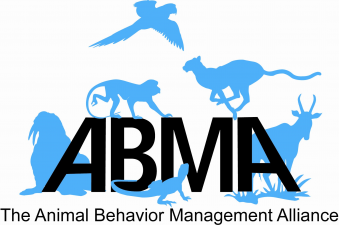According to the American Veterinary Medical Foundation, “Unfulfilled expectations are a leading reason why people give away, abandon, or give pets up for adoption.”
This has certainly been the case at The Bunny Hutch, with over half of the abandoned animals at our shelter coming from homes that were not a good fit.
We get it. It’s easy to see a cute little face and want to take it home. Anyone who is an animal lover has felt that urge to adopt! But after a few weeks, when reality sets in, will you still be able to commit to that new pet? Or will they end up at a shelter?
Instead, don’t make a snap decision. Choose the right pet for your family, so both you and the animal are happy. Pets should enrich your life, not be the cause of stress.
First, a few basic questions:
1. What kind of time can you devote to a pet?
2. What kind of short-term and long-term budget do you have?
The two most basic questions you need to answer… honestly… are regarding time and money. We all make sacrifices for our pets, but again, pets should not be a source of stress. We encourage you to be realistic about the time and money you can devote to a new family member.
In regards to time, you should think about the day-to-day time you’ll spend with an animal, as well as the bigger picture. All animals require some level of daily care. However, a pet such as a snake requires very minimal daily care, while a pet such as a bunny requires a significant amount of daily care. By “daily care,” we don’t just mean spending time with the animal. It’s important to bond, but you’ll also need to spend time shopping for pet supplies, cleaning, preparing meals, and grooming.
Look at the bigger picture, too. How often do you travel for business or leisure? How many hours do you spend away from home every day? How often do you spend the night away from home? If your lifestyle is constantly on the go, some pets just are not a good fit for you.
This ties into the money question as well. You’ll have upfront costs for any pet, including their adoption fee, enclosure/crate/tank/cage, toys, food, and other supplies. But these one-time costs are just part of the money you need to budget for your pet. You’ll have ongoing costs such as food, vet bills, and boarding when you travel.
Something many people don’t realize: you also have to budget for pet fees if you live in a rental. Most rentals ask for an upfront pet fee (typically ranging from $100 – $500), as well as additional monthly rent (typically ranging from $20 – $100 per month).
Beyond the Basics
Once you have determined the time and money you can spend on a pet, there are a few other questions you need to ask yourself before adopting:
- What laws about animals could prevent me from keeping this pet?
Landlords typically limit you to 2 or 3 pets, but this varies greatly. Most cities have laws about the number of mammals you can have, especially cats and dogs. Think about your future as well. Are you going to live in your current home forever? If there is a move in your future, having pets can make it significantly harder to find a place to live.
In addition, some exotic animals are not allowed in some states or cities. For example, if you move to Hawaii, you would not be able to take your pet ferret. This is especially important for military families to consider, since you don’t always have a choice about where you will be stationed.
- Do I have an allergies preventing pet ownership?
Allergies are a funny thing. You might be allergic to dogs, but not cats. You might be allergic to dogs and cats, but not bunnies. Our director is allergic to rat urine of all things, but has no other animal allergies! Think also about the animal supplies you’ll need to use. Many people are allergic to hay, which rabbits and other small mammals need in abundance. Make sure everyone in your household will be able to live happily alongside your new pet. Which brings me to my next point…
- Is everyone in your household on board?
We should all feel healthy, happy, and safe in our own homes. If you’re going to bring an animal into a household, it is important that everyone – adults and children – feel good about that decision. We have received several surrenders because people got pets without first clearing it with roommates, parents, or even spouses. Sit down as a family and have a conversation to make sure everyone approves the pet coming into the household.
Species, Breed, and Individual Personalities
Once you’ve answer the above questions, you probably have a good idea of the type of pet you want to adopt. I would urge you to keep an open mind! It’s time to do some more research about species and breeds.
- What kind of food are you comfortable feeding?
Carnivorous animals need to eat meat. Period. We do not believe it is healthy or reasonable to feed animals unnaturally, and every vet we’ve spoke with agrees. If you do not feel comfortable feeding meat products to animals, the good news is that there are a lot of herbivores looking for homes! Bunnies, for example, thrive on a diet of leafy greens and hay.
Even if you are comfortable with traditional dry meat-based food, you may not be comfortable with the specific dietary needs of some species. Snakes, for example, eat a diet of frozen mice or rats. Many lizards have diets that include live insects. Not everyone is comfortable preparing these diets, but there are other pet options to consider if you don’t like the idea of keeping meal worms in your home, for example.
- What kind of space do you have available?
Some animals need very little space to be happy. Others need not only a large enclosure, but room to roam or run. Depending on the species, you may also need to provide outdoor enclosures. This can vary great from breed to breed as well. Obviously, a mastiff needs more room to live than a chihuahua.
- Do you have kids?
Some animals make create starter pets for kids. Snakes are awesome, especially for a busy family, since they only eat about once a week. Tortoises are super sturdy for tiny hands. Many dog breeds are extremely tolerant. On the other hand, some animals are not great for small children. Did you know that bunnies have very delicate spines? If they panic and twist the wrong way in your child’s arms, they can break their own back. Think about the best pet for your entire family, and remember to consider if you’ll have any new additions to the family during your pet’s life.
- How long do you want to commit to a pet?
Speaking of lifespan… some pets live very short lives. Rats, for example, live only 2-3 years on average, even with the best care. Other pets can outlive humans. Parrots and large tortoise breeds can easily live to be over 100 years old and need to be included when you do estate planning and write a will! If you don’t want to commit to a long-term pet (at least not 100 years!), you can also consider adopting an adult or senior pet.
- Are you prepared for “destructive” behavior?
Many pets are destructive by human standards. They are not being “bad.” They are just doing what comes naturally. Some individuals are more destructive than others, but look first at what you can generally expect with a species. Chewing, digging, marking territory… this all comes with pet ownership. Sometimes training helps, but other times it is just the natural instinct of the animal.
- How clean is your home?
No matter what type of animal you get, there will be some degree of clutter and shedding added to your home. You should be prepared for that. With mammals, obviously shedding is a bigger problem, but all reptiles shed too. The substrate used in their enclosures (i.e. dust, sand, dirt, etc.) could also cause issues for people who consider themselves to be “neat freaks.” And of course, no one likes to think about it, but caring for animals can often be a smelly job. Poop is part of being a pet owner! Some animals are naturally cleaner than others. Some animals are naturally smellier than others. Be honest with yourself about what you are willing to invite into your home.
- Do your personalities “click”?
All the research in the world won’t tell you if a specific individual animal is right for you. Every animal, yes even animals such as snakes and rats, has their own personality. There are animals who are clingy with their owners and animals who like their own space. Some animals enjoy exercise. Some have to be put on diets and forced to exercise. We’ve seen animals that are protective, animals that are easy-going, and animals that are curious. Personalities vary wildly even among the same species and breed. You need to spend time with an individual before adoption, to make sure it is the right personality fit for you.
Fad Animals and Trends
Our shelter happens to be right down the road from a HUGE annual pet expo, and although we know that there are breeders out there who follow the laws and only adopt to people after careful consideration… there are also even more breeders who are just trying to make a buck. They will breed and adopt any animal to anyone with the cash.
Fad animals are species and breeds that are specifically bred because they are currently popular and, thus, breeders can charge more money for them. Don’t fall victim to these fads! Some breeders will flat-out lie to make the sale. That’s why doing your own independent research is so important.
Here are a few examples of recent fads we’ve seen:
- “Teacup” pigs – there is actually no such thing. These pigs will be 25+ pounds when fully grown, and can reach over 200 pounds. They are only small in relation to farm hogs bred for food. Read more about teacup pigs here.
- Ducks and geese as Easter gifts – generally, any animal being promoted as an animal you should buy for a holiday is a bag idea. Ducks and geese need to live on a farm, not in your home. They are very messy, loud, and destructive in a home environment.
- Monkeys – non-human primates are not good pets! Their fingers are extremely strong, and them are temperamental even with the best training and care. Even small monkeys can severely injure their owners in an attack.
- Sugar gliders – these small mammals only make good pets if you’ve done a lot of research first. They need to live in family groups, and be prepared for an extremely messy job cleaning up after them. If you carry them around, also be aware that the urinate constantly.
- Hedgehogs – again, they only make good pets if you have done a lot of research first. Hedgehogs need a very warm environment and are typically not super social. They prefer a diet of live insects and will roll into a super sharp ball when scared, angry, or just not interested in being near you.
- Hermit crabs – we believe that this pet trade is very unethical, because in the wild hermit crabs live in large family groups and like to burrow in the sand. They do not breed in captivity, so the hermit crabs you can buy were taken from the wild. Most do not live a fraction of the lifespan they would have lived in the wild.
- Foxes – they are super cute, but super hard to have as pets. Foxes are not like dogs or cats, if if they are untrained they can be dangerous to themselves and the humans that live with them. They need a very large outdoor enclosure that is fox proof (it’s harder than you think). Be prepared for them to steal items and then urinate/poop on them to “hide” them… which smells like skunk. Remember that foxes like to dig and chew, and their jaws are much stronger than dogs – yes even large dogs. Foxes are also now illegal in Virginia and many other states, and even states where they are legal, it might not stay that way. Above all, make sure your foxes are vaccinated, as they are a rabies vector species. They need vaccinations annually. We heavily advise against getting a fox as a pet! If you are interested, consider volunteering at a fox rescue first so you understand what it is like to care for them.
This is not a full list… but you get the picture.
You may see another trend here: do your research! No matter what type of pet you adopt, you need to do your research to ensure it is the best pet for your family. Researching means more than just googling the pet and looking at cute pictures. You should also speak to people who own the exotic pet that interests you, as well as the the keepers or volunteers who take care of these animals. Here at The Bunny Hutch, we are always happy to answer your questions. There are no stupid questions! We would much rather you ask questions first than adopt an animal you aren’t really ready to adopt.
Email info@thebunnyhutch.org if you have questions or would like to meet with an adoption specialist.








